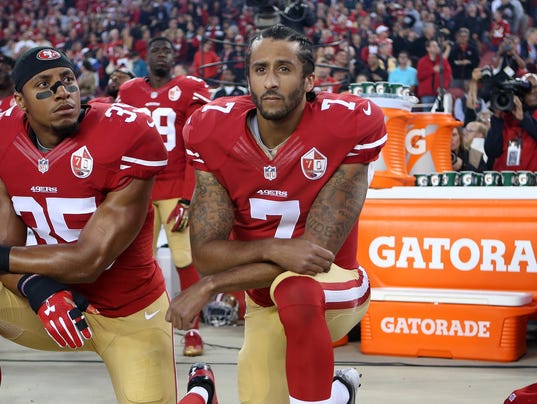
Q: What topic, community, problem, issue or “thing” did you decide to explore?
A: I wanted to explore how sports in the United States are now mixing in it with politics.
Q:Who did you decide you should talk to, observe, interview to learn more about this? (I am asking you to talk to at least 5 different people for this assignment)
A: I talked to my father and other family members to start. Then, I talked with roommates and my friends. Finally, I talked with people I sit near during my classes.
Q: What did these people tell you? Summarize what you learned from your interviews.
A: They told me a lot. First, the older generation, my family, of people do not want sports and politics to be mixed together. They go to sporting events just to see athletes play, not to worry about politics. Next, the younger generation feels that it is quite the opposite. They feel that it is becoming the new norm of peaceful protesting becuase they want to make others feel uncomfortable about the grey and negative area of history and our government wrongdoings.
Q: What did you learn that surprised you?
A: Social media was another outlet that I forget to mention earlier that a lot of people used. The mixing of sports and politics started in 2015 with Colin Kaepernick kneeling during the national anthem. This sparked outrage online in a lot of Americans. After President Trumps speech earlier this month, many player knelled in protest or linked in arms to show unity against the president. They expressed their emotions on social media and other people spread the message.
Q: What kinds of problems, topics, ideas did you discover that you would like to learn more about?
A: I have an idea for sports. I don’t just want to cover the NFL. I might want to think about how I can narrow the scope of sports to Duluth and go from there. My idea would be to find a partner in class and link up our ideas and create something that empathizes with how people feel about sports. Another problem is what has changed in sports to cause politics in the first plays. it didn’t just start with Kaepernick.
Q: What key insights or findings did you discover that excited you most?
A: What excited me the most was to see other people that show a lot of passion and emotion about sports. I liked that it went beyond the beliefs of division rivals and that football for some is as sacred as a religion. Football is a way of life for some families and that is something I learned through strangers on social media to people living around Duluth.
Q: What’s next? What do you think your next step is?
A: My next step right now is to find a partner. Then my long term next step is to discover what my target audience is from the empathy stage.
Q: Reflection: Briefly, did the design thinking process help you see this topic in a new way?
A: Something simple as talking with people about sports was one of the easiest conversation starters. What I really loved about it was hearing people give such great ideas and get me thinking bout how sport affects the athletes that play them.
Q: Last step: Write a problem statement based on what you learned:
A: Athletes need a way to express their beliefs peacefully because of the political agenda in the United States currently.
Some good research, but now I do think you face a challenge in trying to think about what role you want to play in this world of sports. Your problem definition has to do with professional athletes and protesting, but it seems like what you learned in your research is that people love to talk about sports — that this is how they connect with others. So, I’d urge you to stick with that. Now, it’s time to start thinking about a prototype. What’s something you can create that will foster these conversations?
LikeLike